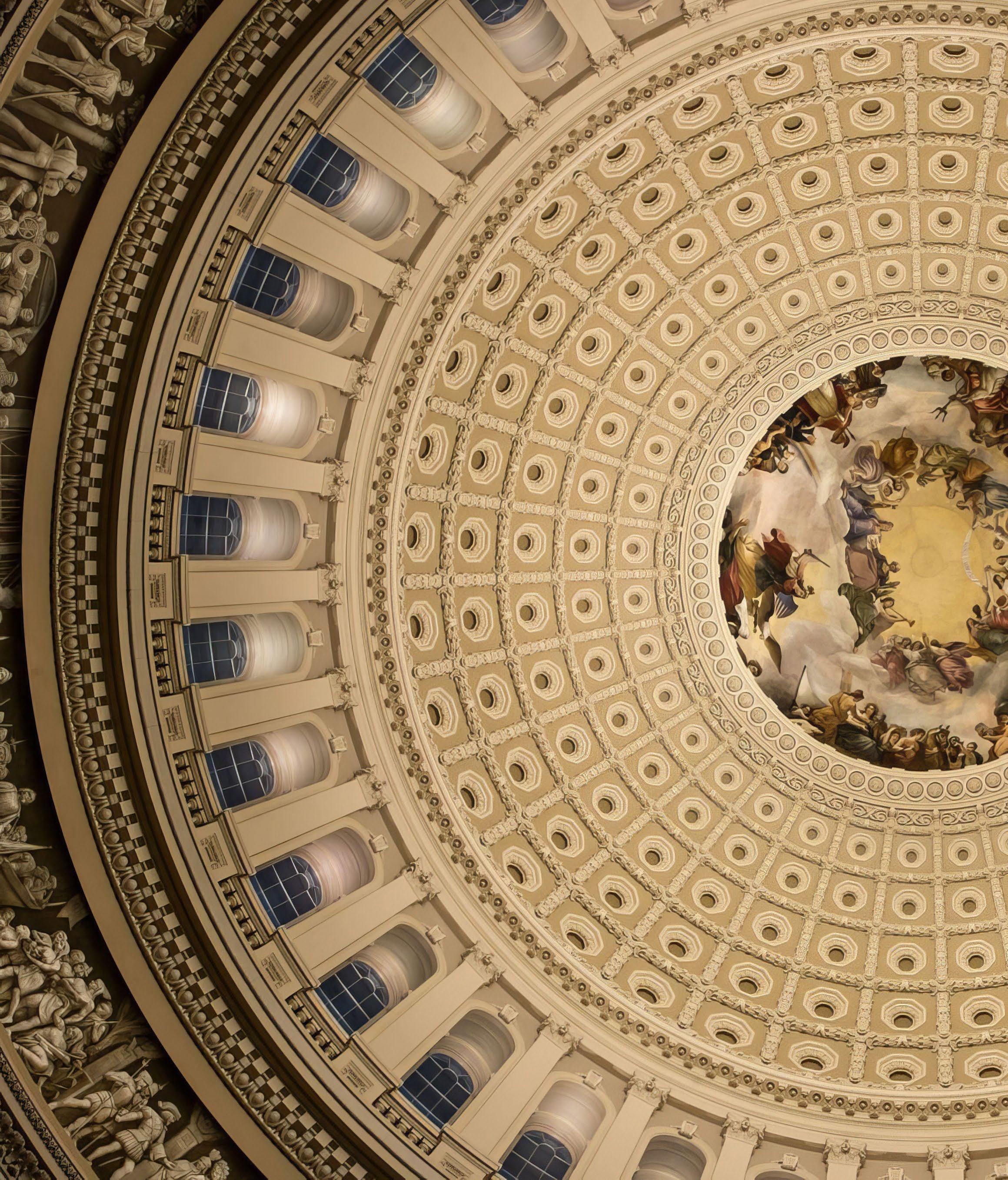




TERM
Cryptocurrency
Blockchain
Bitcoin
Stablecoin
Non-fungible token (NFT)
Web3
A mutually interchangeable, encrypted digital currency that is not backed by a centralized authority.
A digital database that creates a decentralized permanent record of information.
A popular blockchain used to manage transactions. Also, the name of a specific cryptocurrency.
A type of cryptocurrency that maintains a steady value relative to other commodities or currencies.
A unique, tokenized version of an asset, such as artwork, exchanged via blockchain that is not mutually interchangeable and fluctuates in value.
A concept that imagines the future of financial technology (FinTech) as decentralized and user-driven.
Cryptocurrency has become an increasingly visible part of conversations about wealthbuilding, financial access, and economic innovation in the United States.
For Black communities, it presents both opportunities and risks, shaping new ways to invest, save, and transfer money, while also raising critical questions about equity, regulation, and protection.
Before exploring the landscape of digital finance, here are a few essential terms referenced in this fact sheet. These definitions provide context for understanding the mechanisms of the decentralized finance (DeFi) space.
In traditional financial interactions, a third party, such as a banking institution, serves as a central authority, determining when a customer’s funds can be transferred and verifying consumer purchases on behalf of companies. In the digital finance world, users exchange funds on a blockchain platform like Bitcoin. Blockchain, often referred to as a digital ledger, can be used to verify cryptocurrency transactions. As they make these transactions, the software creates an unchangeable timestamp for the transaction without the need for a third party. Instead of physical currency, digital assets are kept in a virtual crypto wallet, which is not backed by the federal government or insurance companies – nor is it subject to fees or other limitations imposed by banks and/or the government. Unlike other cryptocurrencies, stablecoins are backed by select currencies and carry less inherent risk than other types of digital finance.
While Bitcoins are mutually interchangeable, or fungible, NFTs are not. Each NFT has its own metadata, with value proportional to the number of tokens in circulation. For example, an NFT designer can sell a popular asset with a small number of NFTs in circulation at a higher price point. However, if the designer increases the quantity of NFTs available, or the popularity of the asset diminishes, the existing NFTs would decrease in value. This decentralized financial (DeFi) system is encompassed by Web3, a concept for a future that moves away from Big Tech companies to a user-driven, independent financial landscape, as well as an umbrella term for technologies such as blockchain and NFTs.
The inherent independence of Web3 platforms can leave users vulnerable to bad actors.
Cryptocurrencies, unlike traditional money, are not verified by banks or regulated by governmental entities. In the case of a loss, banks have insurance that protects consumers, whereas there is no recourse for cryptocurrency losses. In 2024, 14% of low-income households and 18% of middle-income households said they had owned cryptocurrency at one point. Ultimately, the volatile nature of the cryptocurrency market could jeopardize the financial security of Americans living paycheck to paycheck. Infamously, Sam Bankman-Fried, the founder of popular cryptocurrency company FTX, was convicted of fraud in 2023 for money laundering to support one of his other companies and is currently serving a 25-year prison sentence. The FTX customers who lost money through this process were not able to recoup their funds when FTX filed for bankruptcy, highlighting the need for greater transparency and regulation in the field.
The federal government has not implemented many laws to govern cryptocurrency. This is partially due to interdepartmental variance among federal agencies over the legitimacy of cryptocurrency. For example, because cryptocurrencies are taxable in the United States, the Internal Revenue Service (IRS) requires taxpayers to report cryptocurrency gains and losses in federal tax returns. In addition, the Securities and Exchange Commission (SEC) have deemed cryptocurrencies securities, while the Commodity Futures Trading Commission has identified cryptocurrency as a commodity. Commodities are typically interchangeable units of physical or tangible assets, like agricultural products, while securities are tradeable financial assets, like stocks or bonds, where the primary source of profit is interest or dividends. Because these entities have different oversight requirements, cryptocurrencies are difficult to regulate.

President Trump has embraced DeFi technology. During the 2024 campaign, he launched World Liberty Financial to manage his digital asset ventures, and introduced a stablecoin, USD1. The Trump Administration also issued recommendations on how to usher in a “Golden Age of Cryptocurrency” in the United States. While some of the suggested regulations focus on oversight, many of them are designed to make cryptocurrency more accessible to the general public. Without increased protections, President Trump’s cryptocurrency agenda could leave more Americans susceptible to the vulnerabilities of DeFi.

In July 2025, President Trump signed the Guiding and Establishing National Innovation for U.S. Stablecoins ( GENIUS ) Act into law, which created a regulatory framework for stablecoins that requires them to be valued at a 1:1 ratio with the U.S. dollar. Critics of the bipartisan legislation argue that it allows cryptocurrency companies to engage in banking practice-like behavior without the level of regulatory oversight that banks face. Congressional Black Caucus Member and Ranking Member of the House Financial Services Committee Rep. Maxine Waters voted against the bill, citing President Trump’s involvement with a stablecoin company as evidence of the ease of corruption within digital finance. While this bill represents one of the first successful attempts to regulate cryptocurrency in the United States, there has been a wave of DeFi legislation that seeks to regulate public officials’ access to cryptocurrency, address the environmental impact of DeFi systems, and clarify the regulatory bodies that can enforce crypto-related laws. As a result, significant work remains in order to protect crypto-curious Americans. Below is a list of pending legislation on cryptocurrency and blockchain.
S. 1475 : Clean Cloud Act of 2025
S. 1668: End Crypto Corruption Act of 2025
H.R. 3314 : Stop Presidential Profiteering from Digital Assets Act
S. 2143: Curbing Officials’ Income and Nondisclosure (COIN) Act
H.R. 3633: Digital Asset Market Clarity Act of 2025
H.R. 1919 : Anti-CBDC Surveillance State Act
H.R. 4394 : The Compliant Operations of Decentralized Entities (CODE) Act of 2025
April 10, 2025
This bill amends the Clean Air Act to establish requirements on the collection of electricity consumption data and emissions standards for servers and other computing equipment used for cryptocurrency mining, and for other purposes.
May 7, 2025
May 8, 2025
This bill prohibits the President, Vice President, Members of Congress, and individuals appointed to Senate-confirmed positions from issuing, sponsoring, or endorsing certain financial instruments, including cryptocurrency and NFTs.
This bill prohibits the issuance, promotion, or sale of digital assets that use the name, likeness, or identifiable traits of certain Federal officials or their immediate family for financial gain and establishes regulatory oversight under the Securities and Exchange Commission.
June 23, 2025
June 23, 2025
This bill amends the United States Code to prevent financial exploitation by public office holders, specifically targeting bribery via cryptocurrency and other decentralized financial technologies.
This bill prohibits Federal Reserve banks from issuing a central bank digital currency. The bill also prohibits the Board of Governors of the Federal Reserve System from using a central bank digital currency to implement monetary policy or from testing, studying, creating, or implementing a central bank digital currency.
July 14, 2025
July 15, 2025
The bill requires the Secretary of the Treasury to develop a public-private partnership program to examine innovative anti-money laundering solutions for decentralized finance services, and for other purposes.
The bill requires the Secretary of the Treasury to develop a public-private partnership program to examine innovative anti-money laundering solutions for decentralized finance services, and for other purposes.
Referred to the Senate Committee on Environment and Public Works
This bill has been introduced in the Senate but has not been referred to a committee
Referred to the House Committee on Financial Services
Referred to the Senate Committee on Homeland Security and Governmental Affairs
Passed the House of Representatives, has not yet been taken up by the Senate
Passed the House of Representatives, has not yet been taken up by the Senate
Referred to the House Committee on Financial Services
Black household income in the United States is at a record-high, having nearly doubled since 1967. However, the US’s racial wealth gap continues to widen over time.
For every $100 in wealth that a white household possessed in 2022, a Black household had $15.
This disparity can be traced back to racist government policies, including indentured servitude after the Transatlantic Slave Trade, discriminatory housing policies that precluded Black individuals from buying homes, and predatory lending practices that continue to make it difficult for Black communities to gain wealth. Due to systemic racism embedded in the traditional economic system, some Black Americans are turning to emerging technologies like cryptocurrency and NFTs to build wealth.

Proponents of Web3 argue that the decentralized nature of blockchain helps reduce bias and even the playing field for all consumers, an idea that is appealing to Black Americans who have encountered barriers to economic success. Several DeFi companies have also been endorsed by prominent Black celebrities, including Megan Thee Stallion, LeBron James, and Serena Williams, enticing communities of color to purchase cryptocurrency. While nearly two-thirds of Americans are skeptical that investing or trading cryptocurrency is reliable and safe, many Black Americans view cryptocurrency as an opportunity to be a part of a new frontier of wealth building. However, the lack of accountability measures for bad actors leaves Black Americans vulnerable to financial loss. The repercussions for cryptocurrency scams will be felt more acutely by Black Americans and could jeopardize their ability to build wealth.
CPAR | Financing Black Futures: Cryptocurrency and the Racial Wealth Gap
About one in four Black Americans own cryptocurrency. i 38% of Black Americans under 40 own cryptocurrency. ii
About one in four Black Americans own cryptocurrency. i 1/4
38%
In 2022, 11% of Black Americans said cryptocurrency was their first investment, over investments in the stock market or retirement funds. iii
11% of Black Americans under 40 own cryptocurrency. ii
of Black Americans in 2022 said cryptocurrency was their first investment , ahead of investments in the stock market or retirement funds. iii

i Favario, M, et. al. (2024, October 24). Majority of Americans aren’t confident in the safety and reliability of cryptocurrency. Pew Research Center. https://www.pewresearch.org/short-reads/2024/10/24/majority-of-americansarent-confident-in-the-safety-and-reliability-of-cryptocurrency/.
ii Ariel Investments and Charles Schwab. (2022, April 5). 2022 Black Investor Survey Report of Findings. Ariel Investments. https://www.arielinvestments.com/wp-content/uploads/2023/01/2022-ariel-schwab-black-investor-surveyfindings_4.5.22.pdf.
iii Ibid.
Black Americans are adopting cryptocurrency at higher rates than other demographic groups and have been both disproportionately excluded from prosperity in the traditional financial system and disadvantaged by failures in the digital economic system. Thus, the federal government should adopt more robust DeFi regulations to protect consumers. The following policy interventions will strengthen the federal regulatory framework, reduce risk for crypto users of color, and help close the racial wealth gap.
ADOPT A SINGULAR CLASSIFICATION OF CRYPTOCURRENCY TO BE USED THROUGHOUT THE FEDERAL GOVERNMENT
Within the federal government, the definition of cryptocurrency varies widely across agencies. This complicates the development of a thorough regulatory framework, which would proactively deter fraud and retroactively punish the perpetrators of cryptocurrency scams. The FTX scandal was one of many crypto scams proliferating in this new economic landscape. Uniform language around cryptocurrency will enhance the federal government’s ability to enact sweeping legislation to protect consumers.
DEVELOP MORE ROBUST LAWS AROUND CYBERCRIMES COMMITTED VIA BLOCKCHAIN TO HOLD SCAMMERS ACCOUNTABLE
In recent years, the SEC has dropped lawsuits against prominent blockchain and cryptocurrency companies, while the Federal Deposit Insurance Corporation (FDIC) has repealed regulations that prohibit banks from engaging in cryptocurrency. As a result of the 2008 financial crisis, Congress established the Consumer Financial Protection Bureau (CFPB) to address financial fraud on behalf of the public. President Trump defunded the CFPB and fired 90% of the agency’s staff in early 2025, leaving Americans vulnerable to economic predators. The federal government’s enforcement power is a key factor in the fight to hold bad actors accountable, and all federal agencies must work to update laws and prosecute cases of fraud via cryptocurrency.
PASS LAWS THAT REQUIRE MAJOR TECHNOLOGY COMPANIES TO INSURE CRYPTOCURRENCY
Cryptocurrency companies have entered the political arena, with many starting political action committees (PACs) to fund lawmakers that support their agenda. During the 2024 election cycle, both Democratic and Republican candidates received campaign contributions from crypto PACs, which could explain Congress’ struggle to pass legislation regulating cryptocurrency. The 2008 Great Recession led to a stock market
CPAR | Financing Black Futures: Cryptocurrency and the Racial Wealth Gap crash and housing crisis, and, in the aftermath, Congress increased federal regulations for the banking and housing industries. The federal government can act to regulate cryptocurrency companies before a market crash or period of economic downturn by requiring them to meet FDIC insurance requirements.
EMPOWER BLACK AMERICANS TO EDUCATE THEMSELVES ON CRYPTOCURRENCY BEFORE INVESTING
Building financial literacy and knowledge about cryptocurrency will help Black Americans and all prospective crypto users understand potential risks and make informed decisions about their financial investments. When financial institutions fail, communities of color often bear a heavier burden than their white counterparts. Public-private partnerships that fund educational campaigns and financial programs can assist Black people with taking charge of their wealth building journeys.
COMBAT THE USE OF EMERGING TECHNOLOGIES LIKE ARTIFICIAL INTELLIGENCE (AI) TO SCREEN PROSPECTIVE HOMEOWNERS, AS THEY ARE LIKELY TO SURFACE OUTDATED INFORMATION
Some landlords or real estate agencies use AI to simplify the vetting process but algorithmic bias can lead to the dismissal of Black applicants without just cause. In 2021, Forbes found that banks denied up to 80% of Black mortgage applicants due to AI. Congress should pass legislation to regulate the use of AI in lending and the housing industry in order to even the playing field for Black Americans.
REINSTATE THE MINORITY BUSINESS DEVELOPMENT AGENCY (MBDA) TO ALLOW AMERICANS OF COLOR TO RECEIVE THE RESOURCES THEY NEED TO BE SUCCESSFUL ENTREPRENEURS
In March of 2025, President Trump significantly reduced the MBDA’s funding and personnel , restricting its ability to support minority business enterprises and help create jobs in Black communities. Restoring the MBDA’s capacity will increase economic mobility for Black Americans in a more regulated system than decentralized finance.